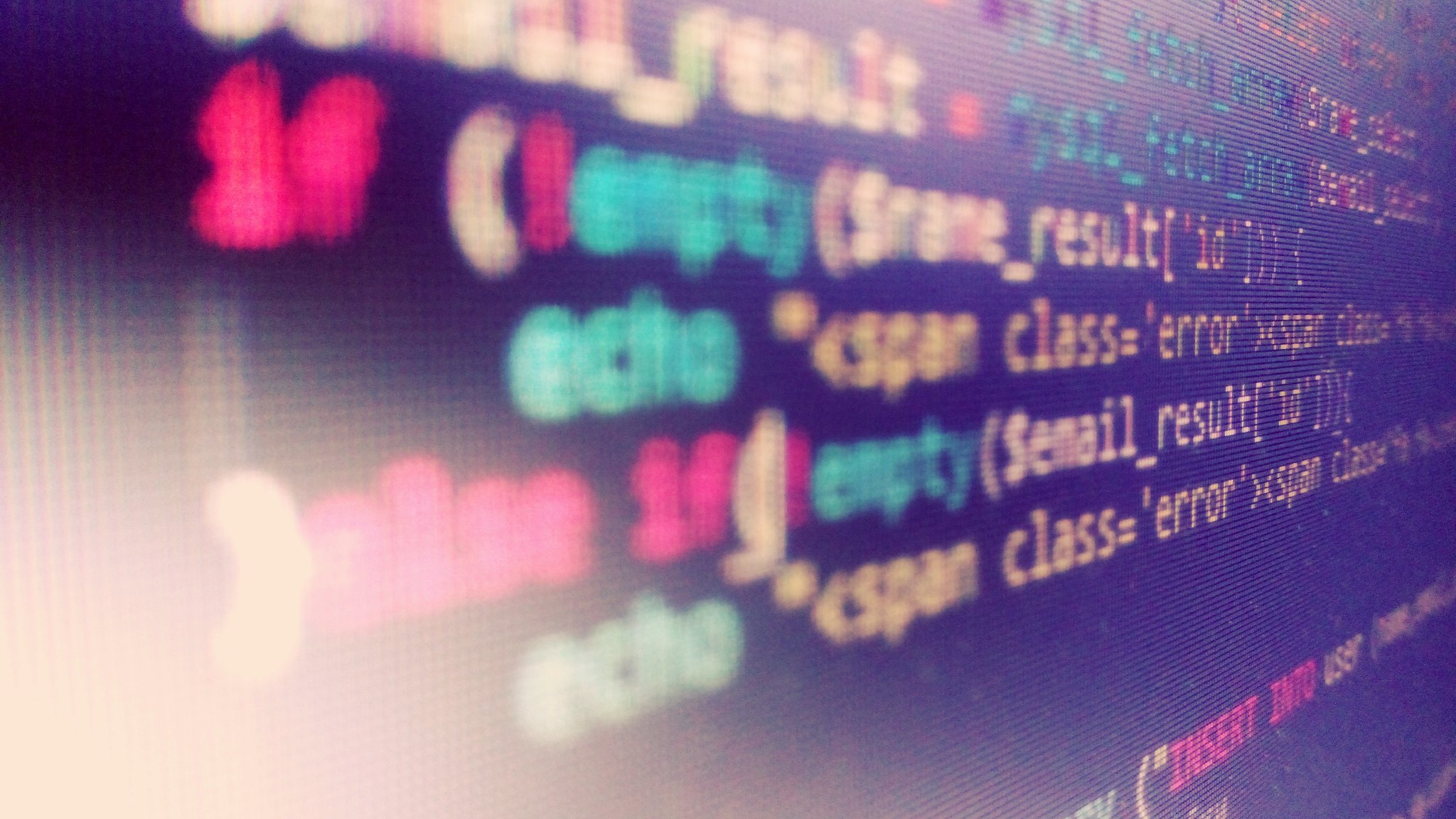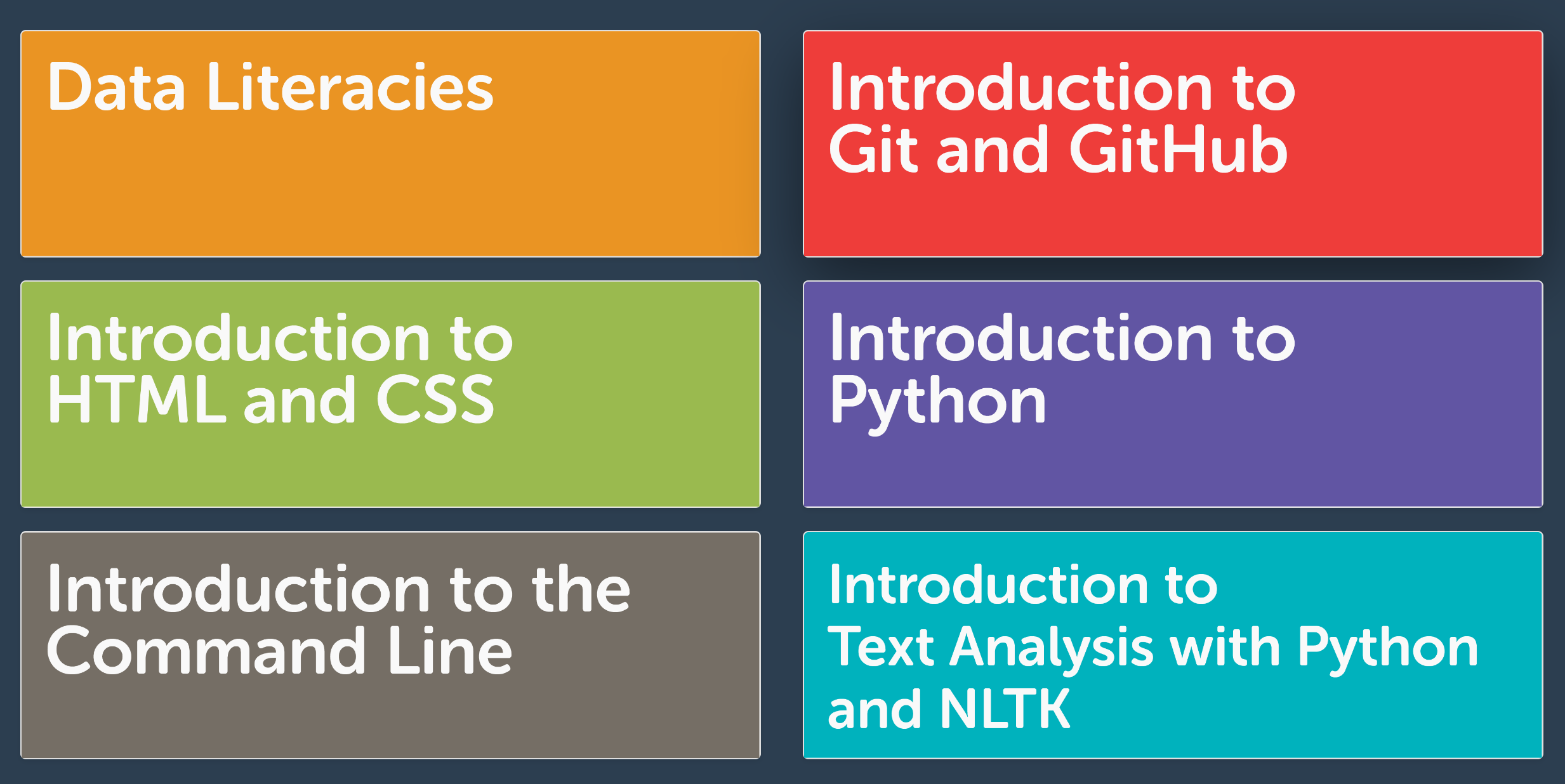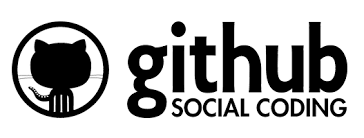
The GC Digital Research Institute (DRI) educates in more ways even than advertised. GC Digital Initiatives (GCDI), the program that runs the DRI, advertises that it will teach CUNY students, faculty, and staff the foundational concepts and skills necessary for understanding and using digital technologies, and help participants in developing their individual digital projects. This year, they rose to the challenge of shifting the institute online, using Zoom and Slack, with weekly meetings (5 total) on Saturday morning. Going into the institute, I was eager just to get started, thinking I could eventually learn to make websites or programs for interactive introductions to philosophical material. But in my case, learning how Python could be used for text analysis opened a whole range of possible Python-using research projects as well, provided I can get digital versions of the relevant historical texts. For anyone—like me—who is interested in the genealogy of certain concepts, Python is a tool worth learning about. It is the Swiss-Army-knife version of a wordsearch function: the things you wish a word-search could do, Python can probably do.
But while I found all of this both helpful and exciting, I found myself thinking too of the intrinsic value of learning to talk to computers. In her introduction to the Workshop Series, GCDI’s Deputy Director, Lisa Rhody, emphasized that the platitude that computers are smart is misleading. They are the ultimate pedants. A mis-capitalization or typo will result in an error message. (Imagine if normal human communication had evolved to this. That would probably be the end of the human experiment.) This is not much unlike formal logic, which models the transitions involved in logical, truth-preserving, reasoning. For example, if we know something is either x or y, and it’s not x, then we can deduce that it’s y. The “sentences” (or ‘well-formed formulae’) in logic look odd compared to ordinary sentences, though we can see the structural similarity. Much of what facilitates or decorates natural human communication is trimmed away, and the syntactic elements remain, bare and exposed for analysis. In this sense, formal logic models what is explicitly said, rather than what is meant by what is said: the intended interpretation a speaker has in mind. In ordinary conversations, we all rely so much on the ability of others to interpret what we mean that miscommunication is not uncommon. As a professor once grumbled on my paper, we can’t rely on telepathy. Formal logic then, in addition to being a model, also functions as a skill. It highlights what we take for granted and demands of us that we be explicit and exact in what we say.
So too do computer languages. In some ways, it’s even more challenging than running a model argument in formal logic (called ‘derivations’): there are more terms and functions, more possible transitions, and greater chances for making mistakes that halt one’s work. It’s not just that the computer requires certain inputs from us, it’s that we have to shift—temporarily—how we think in order to get familiar with providing the proper inputs. It’s necessary to build up some speed and regularity. Even though I’d learned ‘shifting’ like this before with logic, I had to learn a new sort of shifting. It’s an experience that’s hard to describe. It’s like wearing special glasses so that you see the world in pixels. You can still see, but it’s a bizarre experience, one that makes you enjoy the fresh pixelated-vision but also renews your appreciation for regular vision. Coding works like these special glasses, but for communication.
Fortunately, the marvelous GC Digital Fellows are there to guide participants in learning this new (to us) pedantic language, reminding us we needed to act like the stickler correcting split infinitives at the pub. Those who have learned another language—and everyone has learned at least mathematics—know that you start by learning to make simple sentences and gradually learn to form more and more complex ones, involving more rules of construction and more variety of words. Before one learns to add 6 numbers together, they learn to add 2; before one learns large numbers, they learn the ones they can count on their fingers. The sessions on Command Line and Python (and presumably R, though I was not in this session) coached participants in constructing various sorts of simple sentences. As mentioned, unlike learning a second language, the programs have no mercy for mistakes in the constructions. The Digital Fellows promptly helped participants fix the mistakes, while also emphasizing that mistakes are common and expected. Coding is initially a counter-intuitive, unconventional way of writing.
And the information that goes into, and is produced, by such coding is likewise peculiar, as was discussed in the session on Data Literacy. For instance, I am currently writing this post in Microsoft Word, which—like many programs—does so much formatting work for me. This is so familiar to us that we rarely reflect on it. The words that appear on the page may come from my head, but their transference to the page is fully handled by the algorithms constructed by Microsoft programmers. This raises proprietary questions, ones that result in practical conflicts when another person has a program that can’t read formats from another. If one can do their own formatting (as on LaTeX), one can mitigate these concerns.
Thus, while the DRI does, unquestionably and deftly, enable participants to grasp foundational computer skills and concepts, it also provokes reflection and enriches non-computer skills and concepts that many of us—within and without academia—use. Learning to communicate directly with one’s computer via the Command Line, for example, shows in contrast how much is involved in natural communication that not only are we unconscious of but tacitly adept at. But how tacitly adept? It seems sometimes that we increasingly live in a world of shorthand and incomplete explanation, one that can be exploited in the direction of accusing (“I know you meant this!”) or deflecting (“I didn’t really mean that”) with little resolution. The functionality and the emotionality of human communication sometimes seem inseparable.
Perhaps it is a worthwhile exercise, as human beings, to learn to speak to a machine who cares not what we intended, but disinterestedly processes only what we said. That GC Digital Fellows provided such a composed, informed, and welcoming environment to engage in this humbling exercise, while also efficiently introducing new subject-matters to participating students, is a marvel that lifted my spirits and fueled my eagerness to learn more.






